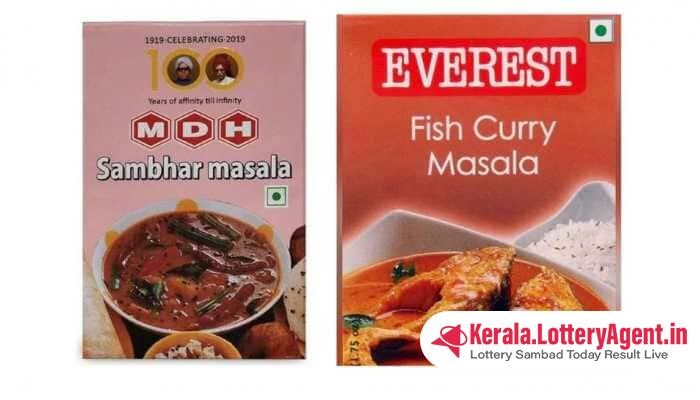
Hong Kong’s Center for Food Safety (CFS) has taken stringent measures against two prominent Indian spice brands, MDH and Everest, both of which have been alleged to contain carcinogenic pesticide ethylene oxide in their products. This development follows close on the heels of Singapore’s decision last week to take action against the Everest brand for the same reason.
The alarm was sounded on April 5 when the Centre For Food Safety of the Hong Kong Government Administrative Region revealed the findings from its routine Food Surveillance Programme. In an unsettling discovery, tests conducted on three MDH products—Madras Curry Powder, Sambhar Masala Powder, and Curry Powder—showed the presence of ethylene oxide, a pesticide classified as a carcinogen, raising serious health concerns.
In light of the test results, the CFS promptly notified the retailers involved regarding the severity of the findings and issued instructions for the cessation of sales, along with the immediate removal of the contaminated products from store shelves. This protective action is part of Hong Kong’s larger commitment to maintaining strict food safety standards and ensuring the well-being of its consumers.
Further echoing the concerns of their counterparts in Hong Kong, the Singapore Food Agency (SFA) had already issued a recall for ‘Everest fish curry masala’ from the Indian market. Ethylene oxide, which exceeded permissible levels in these food products, is not an authorized pesticide for use in foods according to international food safety norms. Consumers who had purchased these products were advised to discard them, as the substance was deemed unsafe for consumption.
While the immediate consumption of ethylene oxide in small quantities is not expected to cause immediate harm, health experts have continually stressed the importance of limiting exposure to such substances. Prolonged or repeated consumption can pose significant health risks over time, including chronic illnesses that may not manifest until years after exposure. The stark reality is that while these spices are integral to various culinary traditions, especially within the South Asian community, their safety cannot be compromised.
As a result of these findings, there has been a renewed call to consumers to be vigilant about the origins and safety of the products they bring into their homes, indicating a much larger issue at hand—an issue that affects the level of trust between international markets and the regulatory systems that oversee food safety standards.
The unfolding situation has broader implications for the Indian spice industry, which prides itself on being an essential part of culinary traditions worldwide. It places a spotlight on the need for rigorous testing and compliance with global safety standards, and it calls into question the checks and balances employed by manufacturers to ensure their products are safe for export and consumption.
Moreover, this revelation may compel authorities in other regions to scrutinize imported Indian spices more closely, potentially affecting trade relationships and consumer confidence in these products until thorough investigations and corrective actions are taken.
In a similar vein, consumers in Hong Kong and Singapore have been cautioned to be more conscious about their consumption choices. Food safety agencies urge the public to adhere to updates and guidelines issued regarding the usage of these and similar products while the matter is thoroughly investigated and until the safe consumption of these spices can be reassured.
As this situation unfolds, it draws attention to the increasingly interconnected nature of food safety and international trade, highlighting that it is not only the responsibility of manufacturers to ensure the safety of their products but also of local and international entities to maintain vigilance to protect public health.












